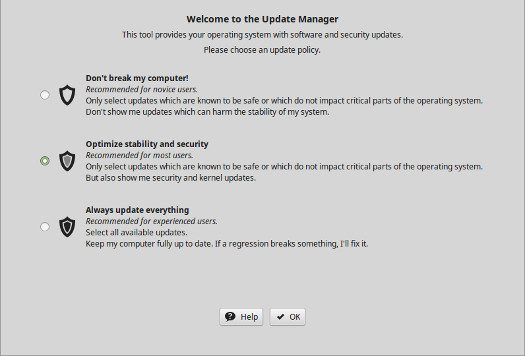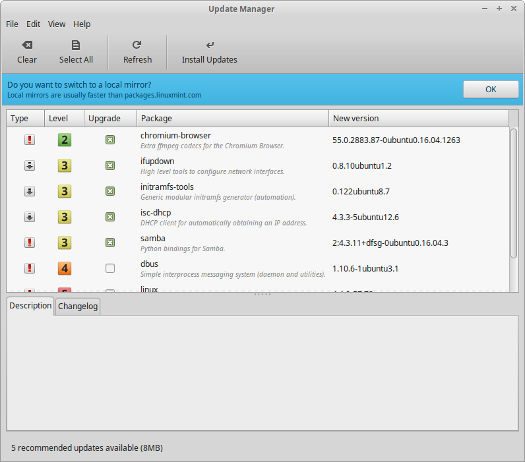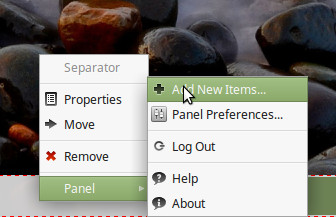Open Source 101 is an all day world-class introduction to open source for only $10 -- and the price includes lunch. Where's the profit in that?
Posts published by “Christine Hall”
Christine Hall has been a journalist since 1971. In 2001, she began writing a weekly consumer computer column and started covering Linux and FOSS in 2002 after making the switch to GNU/Linux. Follow her on Twitter: @BrideOfLinux
The man whose much disputed claim to have invented email when he was a 14-year-old is taking legal actions, or threatening such, against anyone who publicly disagrees with his version of history.

Shiva Ayyadurai says he invented email and will sue the pants off anyone who says he didn’t. He’s already picked up a fat $750,000 settlement check from Gawker, which decided to settle because another lawsuit by Hulk Hogan had already put the site out of business. There is currently a suit pending against Techdirt, a site that mainly reports on threats to free speech. Now he’s going after social media, by sending a demand to a node of Diaspora to remove three posts by Roy Schestowitz, publisher of the popular FOSS site Tux Machines and the iconoclastic blog Techrights.
Christine Hall has been a journalist since 1971. In 2001, she began writing a weekly consumer computer column and started covering Linux and FOSS in 2002 after making the switch to GNU/Linux. Follow her on Twitter: @BrideOfLinux
Evidently DevOps running MongoDB haven’t heard the word about the latest round of ransomware targeting the database, as the numbers of deployments with data being held for ransom continues to rise.

Last week when the news started hitting the net about ransomware attacks focusing on unprotected instances of MongoDB, it seemed to me to be a story that would have a short life. After all, the attacks weren’t leveraging some unpatched vulnerabilities in the database, but databases that were misconfigured in a way that left them reachable via the Internet, and with no controls — like a password other than the default — over who had privileges. All that was necessary to get this attack vector under control was for admins to be aware of the situation and to be ready and able to reconfigure and password protect.
Guess what? It hasn’t gone down that way — at least not so far.
On Wednesday when I wrote about this there had been about 2,000 databases attacked. By this morning, according to eWeek, over 10,000 databases have been affected. What’s more, last week it appeared as if all of the attacks were being carried out by one person or organization. Now there are at least five organizations steadily working in an attempt to turn unprotected databases into bitcoins.
Christine Hall has been a journalist since 1971. In 2001, she began writing a weekly consumer computer column and started covering Linux and FOSS in 2002 after making the switch to GNU/Linux. Follow her on Twitter: @BrideOfLinux
FSF and GNU decide to grant Libreboot lead developer Leah Rowe’s wishes. The project is no longer a part of GNU says RMS.
Breaking News

A saga that began about four months ago has ended — or so it seems, On Thursday, Richard Stallman, founder and head of the GNU Project, officially said Goodbye to GNU Libreboot in an email on the GNU mailing list.
Christine Hall has been a journalist since 1971. In 2001, she began writing a weekly consumer computer column and started covering Linux and FOSS in 2002 after making the switch to GNU/Linux. Follow her on Twitter: @BrideOfLinux
In this trip down memory lane, we look back to the days when cutting edge technology came with vacuum tubes.
Days of Future Tech Passed

The first broadcast of FM stereo in North Carolina was on WMDE, an FM-only radio station in Greensboro. I’m guessing that the time was late 1961 or early 1962, as the FCC approved FM stereo broabdasts in April, 1961. Dad ordered the stereo generator as soon as they became available. I was there the night it was installed. I would have been 10 at the time.
The station was no more than a control room and transmitter room, that had been built by my father and one of his friends in the corner of a brick building that had been some sort of garage, but which my father had turned into a television repair shop when he bought the building in the early 1950s. In the control room, the walls and ceiling from about waist high were covered with white acoustic tiles, made of compressed fiber, with holes to absorb sound. The bottom half of the walls were plywood painted light lime green, with a strip of molding running along the seam at the bottom of the tiles. Like nearly all control rooms, there was no outside window.
The console desk, also built by Dad, was a backwards “C,” built deep and sat against the transmitter room wall. The console was a small Gates Studioette, bought new in 1956, which could mix from four sources. To expand its mixing capabilities, there were switches that the operator could use to take audio from additional sources and assign them a pot. It was a Gates, so it was well designed and built. Rek-O-Kut Rondine turntables with Gray hydrolic tone arms sat on each side of the operator.
Christine Hall has been a journalist since 1971. In 2001, she began writing a weekly consumer computer column and started covering Linux and FOSS in 2002 after making the switch to GNU/Linux. Follow her on Twitter: @BrideOfLinux
After you get Linux up and running on your computer, there are still a few things left to do. Here’s a short list that newcomers might find helpful.

Linux for Newcomers
Those who are new to Linux might just go to work right away after installing, or having someone else install, GNU/Linux. However, there are a few things you should do first. Some of them, such as updating your system and activating the firewall, are essential. Others are just things you do to customize your Linux experience.
Here’s a short checklist of things to do after you get Linux up-and-running on your computer. You should consider the first two items on this list as being required, with all the other items being optional. The list is specific to Linux Mint 18.x Xfce Edition, so if you’re using another flavor of Linux, you’ll be better off searching for another list.
Christine Hall has been a journalist since 1971. In 2001, she began writing a weekly consumer computer column and started covering Linux and FOSS in 2002 after making the switch to GNU/Linux. Follow her on Twitter: @BrideOfLinux
With Linux Mint Xfce 18.1 “Serena” due to be released any day now, we decided it was too late for a full review of Mint Xfce 18.0 “Sarah,” and opted instead for this down-and-dirty “nonreview.”

The FOSS Force Review Nonreview
Oh, drat. I’ve done gone and procrastinated too much again.
Shortly after Clem Lefebvre and his buddies released the Xfce edition of Mint 18 — that’s “Sarah” for those who prefer names to numbers — I installed it on one of the laptops I keep at the office so I could write a review. I even took the laptop with me to All Things Open in late October to give it a good workout — which I did writing my coverage of the conference for “another website.”
I never did get around to writing the review, but it’s always been on the back burner. I’d get it written before the next version of Mint is released, I figured.
Christine Hall has been a journalist since 1971. In 2001, she began writing a weekly consumer computer column and started covering Linux and FOSS in 2002 after making the switch to GNU/Linux. Follow her on Twitter: @BrideOfLinux
Regardless of what you may have read elsewhere, the Linux Mint team takes security very seriously and wants you to keep your system up-to-date.

Swapnil Bhartiya gets it wrong.
Let me start by pointing out that Bhartiya is not only a capable open source writer, he’s also a friend. Another also: he knows better. That’s why the article he just wrote for CIO completely confounds me. Methinks he jumped the gun and didn’t think it through before he hit the keyboard.
The article ran with the headline Linux Mint, please stop discouraging users from upgrading. In it, he jumps on Mint’s lead developer Clement Lefebvre’s warning against unnecessary upgrades to Linux Mint.
Christine Hall has been a journalist since 1971. In 2001, she began writing a weekly consumer computer column and started covering Linux and FOSS in 2002 after making the switch to GNU/Linux. Follow her on Twitter: @BrideOfLinux
After announcing in September that 500 million accounts had been compromised in a 2014 security breach, the company announces today that an additional billion accounts have been hacked in a separate incident.

Breaking News
If you’re a Yahoo user, you should strongly consider closing your account. If you decide to keep your account open, you might as well post your username and password to Facebook and send them out in a tweet, for all the good Yahoo’s security precautions will do for you.
Christine Hall has been a journalist since 1971. In 2001, she began writing a weekly consumer computer column and started covering Linux and FOSS in 2002 after making the switch to GNU/Linux. Follow her on Twitter: @BrideOfLinux











